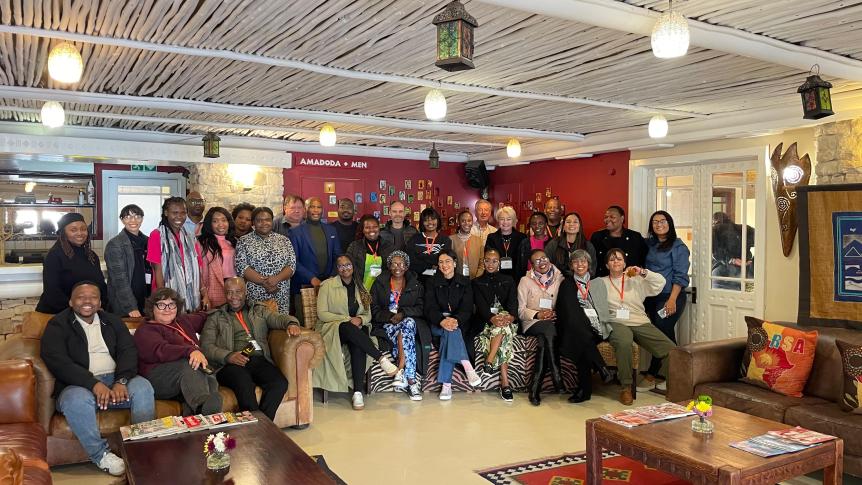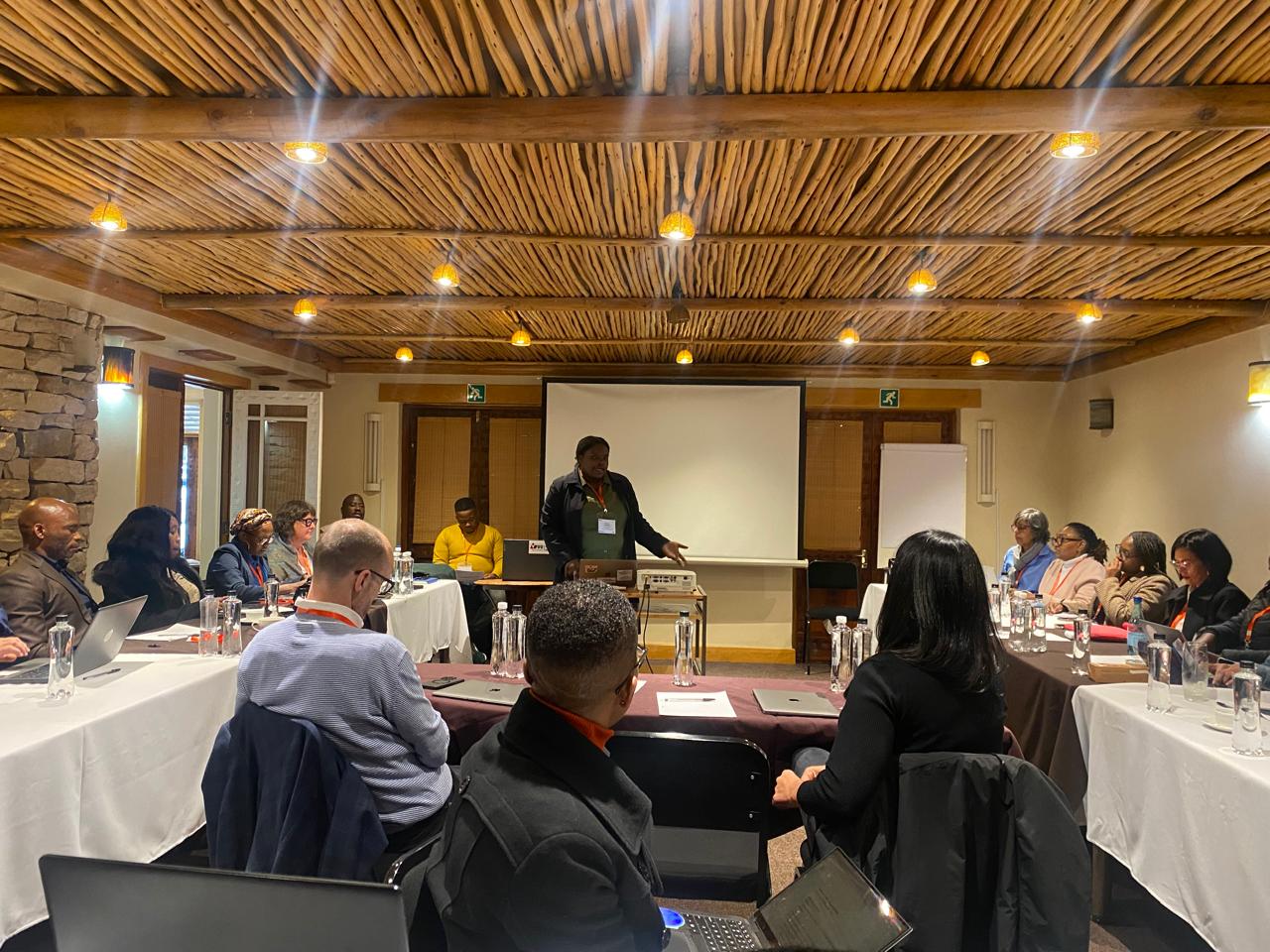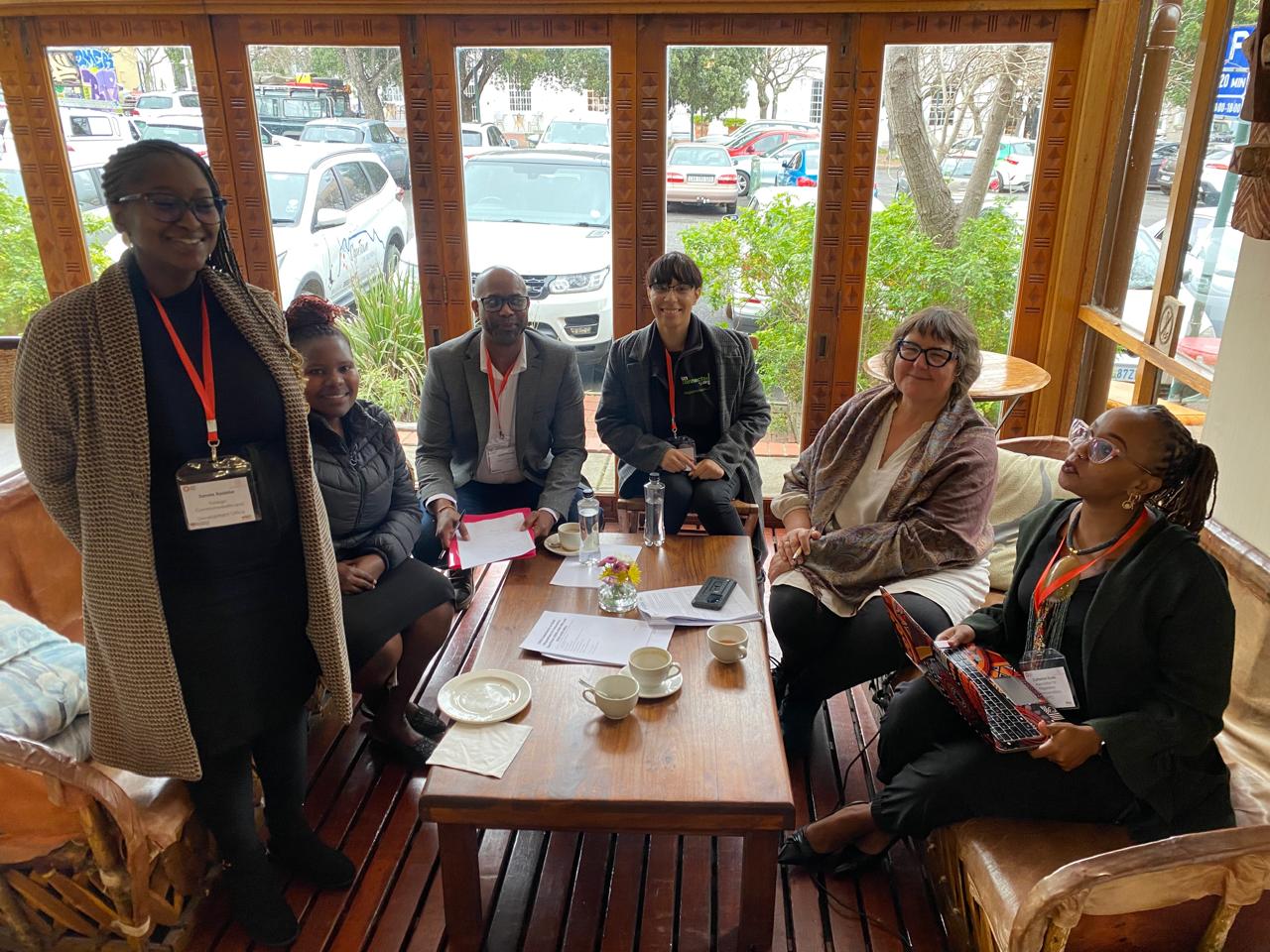
Community networks in South Africa have recently reached a key milestone on the road toward digital inclusion in the country: a National Strategy for Community Networks is being launched after a carefully nurtured process involving contributions from a diverse and committed group of stakeholders. The country now has a comprehensive framework to support and scale community networks, addressing the need for community-centred connectivity initiatives (CCCIs) and indicating how to promote them through policy and regulation, capacity building, institutional strengthening, and access to funding – the main ingredients needed for the long-term sustainability of these South African networks as well as those in our wider global CCCIs movement.
This is the first time South Africa has a nationally recognised framework for community-centred connectivity, and also the first time such a strategy has been validated collectively by many of those who play key roles in achieving meaningful connectivity with and for communities. At the end of July, this diverse group gathered for an online meeting and a two-day in-person workshop in Cape Town to review and finalise the document.
The strategy also recognises the long road moving forward, focused on securing appropriate financing options for community networks and CCCIs, both at start-up as well as late maturity on their journey. The upcoming side event, a Think20 (T20) summit dialogue, as part of South Africa’s G20 presidency, will provide a platform for giving visibility and an opportunity for advocacy in this sense.
These events marked not just the formal endorsement of the strategy, but also a growing national commitment to community-centred connectivity, recognising that these initiatives offer inclusive, accessible and affordable solutions for closing the country’s digital divide. “Community networks offer a proven alternative,” the strategy document states.
The paradox of South Africa
South Africa embodies the paradoxes that make community connectivity both essential and challenging. The country has some of the most advanced telecommunications infrastructure on the continent, with 4G coverage proclaimed to now reach 98.8% of the population. Yet inequalities in access remain stark.
As the national strategy explains, these inequalities are a legacy of apartheid: “Today’s digital divide mirrors these historical patterns, with urban affluent areas enjoying reliable connectivity and stable power, while rural and urban underserved communities face significant barriers in availability, quality and affordability.”
The numbers tell the story clearly. Only 1.6% of rural households have internet access at home, compared to 13% of urban households. For communities living at or below the poverty line, the cost of connectivity is prohibitive. A 20-gigabyte data bundle consumes 38.4% of a monthly income – a barrier to meaningful access and participation that is hard to overcome.
Across rural cooperatives in the Eastern Cape and urban hubs in Khayelitsha, community networks have already shown that connectivity can be affordable, community-owned, and tied to broader development goals. The national strategy gives these alternatives a policy backbone, featuring the national context, describing community networks within the community-centred connectivity typology and principles, identifying priorities and challenges, and moving forward proposing a detailed roadmap. The strategy outlines a three-year 2025-2027 implementation framework with activities, timelines and responsibilities developed collaboratively.
A plan built from the roots
The new national strategy is the result of a multi-year, community-led process, built on important antecedents, beginning in the 2020-2022 period, when extensive work on policy consultations and submissions was carried out by civil society and community networks. These initial efforts ensured that today's 2024 “Next Generation” spectrum policy – as the new regulatory framework aimed at modernising spectrum management is called – includes language about community networks.
After that, one significant event was the creation of the South African School of Community Networks in 2022, which brought together local networks for a year-long immersive course, including two weeks of face-to-face training, followed by a process of collective reflections to address needs and challenges for one year. A micro-grant call also allowed them to undertake foundational work or conduct strengthening activities for their community networks, which gave rise to key learnings for them, as described in these articles.

Another milestone in this journey was the National Convening of Community Networks in 2024, which assembled policy makers, practitioners and researchers to identify the major policy, financial and operational challenges of CCCIs in the country. It was ahead of this convening that the Community Networks South Africa (CNSA) association was launched, with the aim of aligning efforts and better addressing the sector’s needs. Zenzeleni Networks was selected as national coordinator to operationalise the strategy. In the words of its co-founder, Masibulele Jay Siya, “It becomes our duty as community networks to work together to connect all underserved communities.” In 2024, it was Black Equations who stepped forward to chair the first CNSA, with Ganief Manuel filling the role, alongside other community network volunteers who collectively helped with the directorship.
Extensive consultation followed throughout 2025, leading to a national virtual meeting on 22 July that was attended by 40 participants, and the in-person validation workshop, held on 30 and 31 July in Cape Town. It was multistakeholder event gathering 31 representatives from local community networks, training centres, internet service providers, academics and civil society groups. Representatives of several public institutions also participated, such as the Universal Service and Access Fund (USAF), and donor partners including the UK government’s Digital Access Programme, as well as resource partners including Computer Aid and Unconnected.org. Community networks present at the workshop were Zenzeleni Networks, V-NET, Amadiba Community Network, SOWUG, Mamaila Community Network and Black Equations.
"We do not realise the challenges that community networks face and where they need support until one gets into these spaces and lives the experience.” Violet Mohotloane from Computer Aid International.
The Cape Town workshop was about more than validating a document. Each participant brought unique contributions and feedback that further shaped a wide national strategy for community-centred connectivity. Convened by APC and Rhizomatica through the Local Networks initiative (LocNet) and the UK Foreign, Commonwealth & Development Office, and coordinated by Zenzeleni, participants shared experiences, analysed the national context, and validated the strategy with a focus on five strategic priorities:
- Policy and regulatory environment, addressing spectrum, licences and policies.
- Funding and partnerships, exploring sustainable financing and collaborative models.
- Capacity building, focused on technical skills development, training and mentorship.
- Financial sustainability, developing viable business models.
- Social and economic inclusion, ensuring networks serve broader development goals, including local infrastructure expansion and services.
Following a participatory and action-oriented methodology, stakeholders coordinated partnerships and expressed clear commitments for the implementation of the plan around these priorities.
Critical issues: Gender inclusion and institutional strengthening
As participants of the workshop highlighted, persistent biases and structural barriers continue to affect women’s participation in community networks – from social assumptions about gendered tasks, to male-dominated technical spaces where empathy and support could be further strengthened.
Concrete interventions that further build upon the design of gender-inclusive activities were proposed, such as creating care-centred environments, promoting targeted training, sharing feminist frameworks like the Feminist Principles of the Internet, and funding gender experts and counsellors to lead reflection, among others. The strategy stresses not only the importance of encouraging women’s participation, but also of retaining those already involved. “There is a strong contingent of women in the community network space in South Africa, including in leadership roles and training. Yet observations indicate high turnover and difficulties in retaining women over time,” the strategy notes.

Another critical discussion was the need to strengthen the collective voice representing community networks. The main challenges mentioned were defining the structure of the CNSA, its governance model, and which members’ needs would be addressed by this collective.
"Having attended the validation workshop for community-centred connectivity initiatives hosted by APC, I left feeling optimistic that the grounded policy strategies advanced in the national strategy will allow for both the development of new networks and the expansion of existing community networks in South Africa." Rolf Blom, from Ellipsis and a Zenzeleni Networks board member.
A key contribution was learning through the reflections from the Kenyan Community Networks Association. The Association’s secretary, Risper Arose from Tanda Community Network, was present at the workshop and shared lessons: “As Barrack (Otieno), the chair of the Kenyan Community Networks Association, often says: ‘An association is only as strong as its members.’ As the CNSA forms, there’s a need for institutional strengthening both for the association itself and its members.”
The national strategy defined the development of the CNSA’s constitution and governance structure as next steps: “The CNSA could provide this unified advocacy capacity while collectively supporting individual network development and sustainability.”
A movement only beginning
The National Strategy for Community Networks in South Africa is a robust document that departs from a strong conviction: “Community networks offer a proven alternative.” Several participants of the workshops highlighted, “This is not just a document. It’s a commitment to community-led connectivity models that respond to real needs and drive meaningful digital inclusion” as Gabriella Powell from Unconnected.org observed.
The implementation of the plan from 2025 to 2027 “collates activities and resources that multiple actors will be contributing to advance in a coordinated fashion,” from foundational activities in the first year, through scaling initiatives in the second, to sustainability and consolidation in the third. Some commitments defined in the National Strategy are:
- To develop strategies for both grassroots and national-level advocacy efforts outlining socioeconomic benefits of community network spectrum allocation and a special licence category for CCCIs.
- To conduct alternative funding model workshops and design investment-ready memos and financial models.
- To conduct gender-sensitivity training for network operators and implement leadership development programmes specifically targeting women.
- To form partnerships with technology companies and educational content providers for value-added digital services, including community radio stations, educational platforms and digital marketplace development.
- To develop digital entrepreneurship training programmes, creating networking platforms for resource sharing and facilitating digital opportunities for local businesses.
- To support community-led governance structures through stakeholder engagement and capacity building while facilitating cultural preservation initiatives.
The strategy launch is a milestone and the movement it represents is only just beginning. With new roles now onboarding for technical assistance, policy coordination and stakeholder engagement, and with a new micro-grants call launched to support emerging networks, momentum is building.
The timing is also strategic for another upcoming event: on 1 October 2025, Cape Town will host the side event, Think20 (T20) Summit dialogue as part of South Africa’s G20 presidency. With financing for community-centred connectivity on the agenda, the convergence of the T20 side event and the national strategy offers an important platform for showcasing community networks in South Africa and in our Global South network, through visibility and advocacy activities.
All this allows us to affirm that South Africa’s national strategy for community-centred connectivity is more than a roadmap: it is part of a broader collective promise to transform the global digital landscape in a way that is inclusive, sustainable and rooted in community power.
The validation workshop and the development of the National Strategy for Community Networks in South Africa were funded by UK International Development from the UK government through its Digital Access Programme; however, the views expressed do not necessarily reflect the UK government’s official policies.